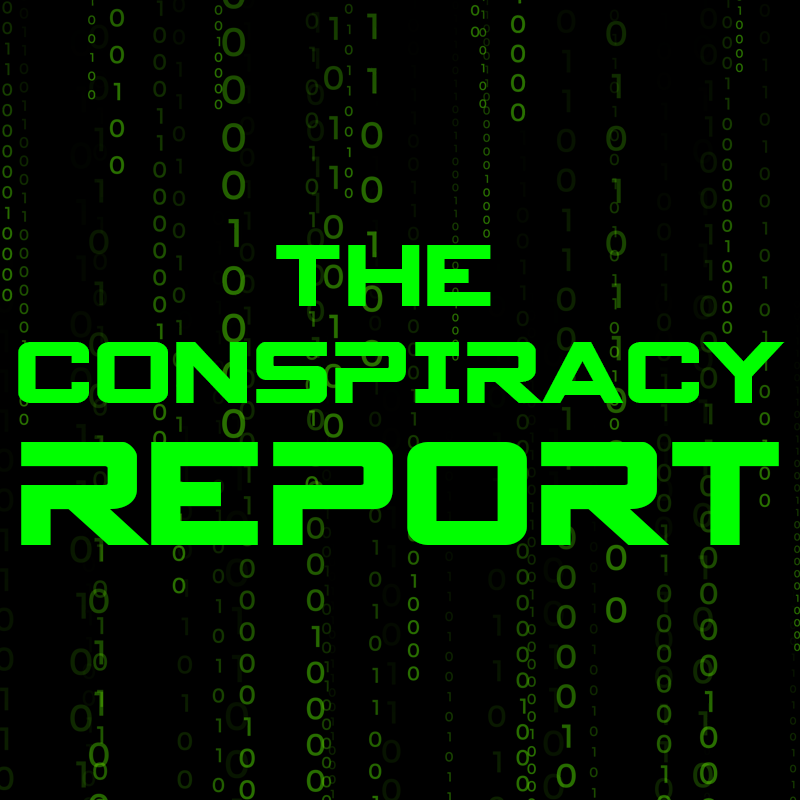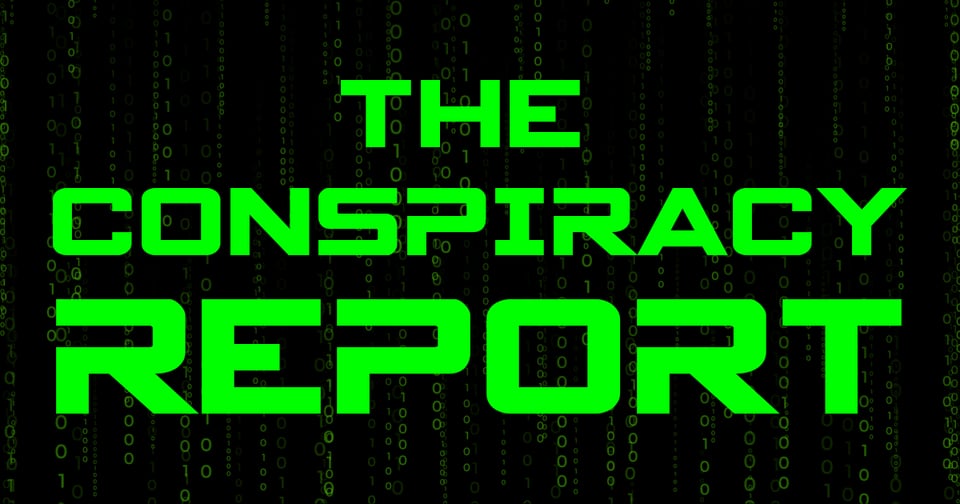March 13, 2025, 4:34 p.m.
The Fifth Anniversary of the Death of Patriot Act Section 215

The Conspiracy Report

March 15, 2025 will be the fifth anniversary of a very important death.
For our freedom as citizens, and more specifically, for the protection of our American First and Fourth Amendment rights — the expiration of Section 215 of the US Patriot Act on March 15, 2020 is a demise to be celebrated.
In case you weren’t around right after the terrorist attacks on 9/11/01, shortly after the smoke cleared, the United States government created the Patriot Act. It was supposed to keep us free and safe from those nasty, naughty terrorists.
Of course, like all legislation, it did a lot more than its stated purpose.
In part, this act kept American citizens away from some very important constitutional guarantees — like those found in the right to privacy and the Fourth Amendment.
Even the full title of the act gives us a clue as to the real intent behind the Patriot Act. Here it is:
An act to deter and punish terrorist acts in the United States and around the world, to enhance law enforcement investigatory tools, and for other purposes.[1]
This law, enacted little more than a month after the terrorist attacks, and likely not read by any of its signers, did a whole lot more than ‘deter and punish terrorist acts.’
Let’s look at the rest of the language, like the part that said ‘to enhance law enforcement investigatory tools’ and the real dangerous part that said ‘for other purposes.’
As a long time practitioner of the black art of criminal defense work under his real name, your author is well aware of how ‘law enforcement investigatory tools’ can be misused. How it can violate constitutional rights, and even hurt law enforcement itself when their misuse causes a criminal case to be dismissed on a ‘technicality.’
Weasel language like ‘for other purposes’ gives a broad stroke to government intrusion on the privacy of its citizens and their right to due process.
While nobody in Congress likely read the three hundred and forty two pages of the Patriot Act before signing, in Section 215 there was a provision which could have the Federal Bureau of Investigation and Department of Justice types very interested in what you were reading.
Let’s take a look at the 215 definition language as encoded in 50 USC 1861, (which for the uninitiated, means volume 50 of the United States Code Section 1861).
The public storage facility definition found in paragraph 3 is interesting:
‘The term “physical storage facility” means any business or entity that provides space for the storage of goods or materials, or services related to the storage of goods or materials, to the public or any segment thereof.’
Let’s dissect that.
‘Any business or entity’ is very broad. A library, for example, is an entity. ‘Providing space for the storage of goods or materials’? A library stores books, and equivalent media. ‘Services related to the storage of goods or materials to the public’? A library provides services related to the storage of goods or materials to the public — you go there and take out a book or a video, or the equivalent.
Okay, let’s look at 50 USC 1862 (a):
‘The Director of the Federal Bureau of Investigation or a designee of the Director (whose rank shall be no lower than Assistant Special Agent in Charge) may make an application for an order authorizing a common carrier, public accommodation facility, physical storage facility, or vehicle rental facility to release records in its possession for an investigation to gather foreign intelligence information or an investigation concerning international terrorism which investigation is being conducted by the Federal Bureau of Investigation…’
Let’s go back to section 215 for a look see how the Feds can take a look see at what you’re looking at when you take out books from your library. Here’s the language:
‘Section 215 of the Patriot Act allows the FBI to seek an order from the FISA Court to obtain "any tangible thing," including books, records, and other items, from any business, organization, or entity provided the item or items are for an authorized investigation to protect against international terrorism or clandestine intelligence activities.’ [2]
But you just don’t read at the library, you’re reading this article, and thinking to yourself, ‘well I’m not a terrorist, I’m not involved in clandestine intelligence activities. I should be okay.’
Maybe, but who gets to define whether or not you’re involved in terrorist or clandestine intelligence activities? The FBI/DOJ does. They get to go to the FISA court, the Foreign Intelligence Surveillance Act court, for authority to investigate a person’s ‘books, records, and other items.’
Guess who doesn’t get to go to the FISA court when that definition is being sought? You don’t.
‘The court’s ex parte process is primarily non-adversarial. The target of the order is not given an opportunity to appear at the hearing or informed of the presence of the order.’[3]
So, is that really a problem for an upstanding citizen like you? It could be. ‘FISA also creates a system of secret, ex parte courts that systematically deny due process to Americans surveilled under FISA.’[4]
You might have heard that phrase ‘due process’ before. It’s found in that pesky little Fourth Amendment that the government so often likes to overlook in its investigative activities.
So, let’s put it together.
The government can investigate ‘books, records and other items’ by getting an order from a court in which you have no say, and in which you have no rights to challenge a determination. Thus, your library records, the books you took out, could be subject to a FISA order allowing the FBI to find out what you like to read.
And you couldn’t even find out from the library that this was happening, because, pursuant to 50 USC 1862 (2):
‘No common carrier, public accommodation facility, physical storage facility, or vehicle rental facility, or officer, employee, or agent thereof, shall disclose to any person (other than those officers, agents, or employees of such common carrier, public accommodation facility, physical storage facility, or vehicle rental facility necessary to fulfill the requirement to disclose information to the Federal Bureau of Investigation under this section) that the Federal Bureau of Investigation has sought or obtained records pursuant to an order under this section.’
You can see the possibilities, and so did the people who don’t believe the lie, ‘we’re from the government and we’re here to help you,’ because Section 215 of the Patriot Act was referred to as the library records provision.
The American Library Association was concerned. ‘On January 29, 2003, ALA Council resolved that Section 215 represented “a present danger to the constitutional rights and privacy rights of library users,” and urged Congress to change sections of the law that threatened those rights. Across the nation libraries posted signs warning patrons the act allowed the government to review their library records.’[5]
In 2015, the President of the American Library Association stated:
‘Nothing is more basic to democracy and librarianship than intellectual freedom….Nothing is more hostile to that freedom than the knowledge that the government can compel a library—without a traditional judicial search warrant—to report on the reading and internet records of library patrons, students, researchers and entrepreneurs. That is what Section 215 did.’[6]
So there was a great deal of controversy about the Patriot Act ‘library records provision,’ but after several renewals, it died a well deserved death on March 15, 2020.
Happy fifth anniversary.
Why You Should Care
Unless challenged, any government — including our own — seeks to expand its power, consolidate its power, and subjugate its citizens. They want as much information as possible about those who live within the borders of that government — whether they need it or not.
Just look at your tax return and the information you have to provide if you want to itemize your deductions, or business expenses. That return isn’t just to get your money — it’s to get your information.
Imagine what your choices in literature and library books could yield to that government, even when you aren’t violating any laws. Imagine what that potential invasion of privacy would be like, except you don’t have to imagine, because while Section 215 was alive and well, the right to privacy was dying.
This bit of recent history should lead you to ask with respect to the invasion of your privacy by the government, ‘What’s next?’
[1] Public Law 107 - 56 - Uniting and Strengthening America by Providing Appropriate Tools Required to Intercept and Obstruct Terrorism (USA PATRIOT ACT) Act of 2001 GOV INFO https://www.govinfo.gov/app/details/PLAW-107publ56
[2] DOJ OFFICE OF THE OIG Https://oig.justice.gov/node/673#:~:text=Section%20215%20of%20the%20Patriot,protect%20against%20international%20terrorism%20or
[3] ELECTRONIC PRIVACY INFORMATION CENTER https://epic.org/foreign-intelligence-surveillance-court-fisc/
[4] FISA VS. THE CONSTITUTION, Tyler, 7/24/18 Houston Christian University https://hc.edu/news-and-events/2018/07/24/fisa-vs-the-constitution/
[5] AMERICAN LIBRARIES, Weigand, 5/31/16 in their opposition to Section 215 of the Patriot Act https://americanlibrariesmagazine.org/2016/05/31/baseless-hysteria-patriot-act/#:~:text=Section%20215%2C%20which%20became%20known,those%20forced%20to%20comply%2C%20thus
[6] American Library Association ‘inimically against’ bill to extend Section 215 of PATRIOT Act without ‘urgently needed change’